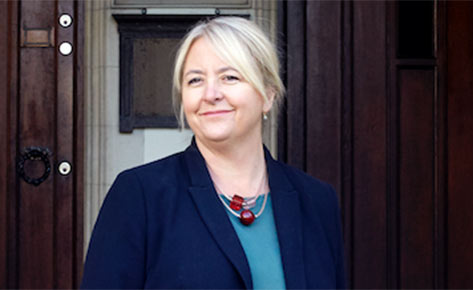Pollinator project brings the community together
18 June 2020A local resident tells of how she recently fulfilled a life-long dream of keeping bees – inspired by her grandmother’s own experience during WWII. Cate Priestman writes about establishing a hive, with the help of her Residents’ Association and the Estate.

How to plan an apiary
A neighbour suggested that keeping bees communally would be a good way to contribute to the ecology of the area as well as provide a great learning opportunity to children. It occurred to me that other residents might be keen on the idea. We set about establishing how much time, money and space it would take to set up a small apiary.
Beekeeping skills
We enrolled on the brilliant beekeeping course run by Camilla Goddard of Capital Bee in New Cross and I also took a one-day beekeeping course run by Philip Nicholson at Bell House in the Village. His knowledge and advice was invaluable.
Seeking community approval
We emailed all Estate residents setting out a plan and requesting feedback. Every response received was positive. We then sought approval from The Dulwich Estate, who were equally encouraging. They advised us to contact Paul Bond who has kept bees near the Estate offices for over 40 years. With his help and advice, we put forward a final proposal to the Residents’ Association which agreed to lend us the start-up costs from money raised through various events we hold on our estate throughout the year.
Beekeeping group
We set up a beekeeping group - now 15-strong. We were very lucky to have a resident carpenter as a member who helped construct the hives and set out a suitable area for the apiary. The talents, experience and enthusiasm of a number of residents has been crucial in making this a successful start-up.
The bees
A resident knew of a colony of bees that were intending to swarm. On 3 May, we received a colony of up to 10,000 bees which seemed to settle quickly and are now happily foraging on local blossoms. We have started regular hive inspections every 7-10 days. A new colony might produce enough honey for harvest in their second summer so if we are able to gather some honey next year, it will be an added bonus.
Covid-19 challenge
We are observing the social distancing rules that result in a ‘waggle dance’ of our own when inspecting the hives. I have never been involved in a project where there has been so much approval and positivity. It is a wonderful antidote to the uncertain times we find ourselves in.


